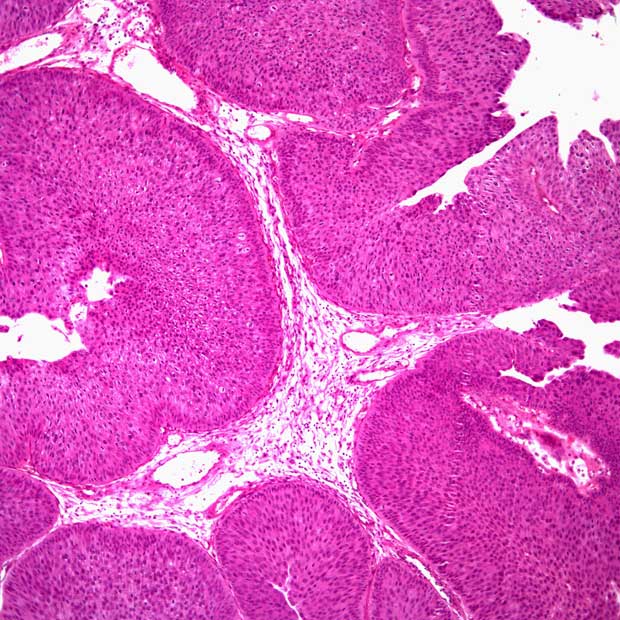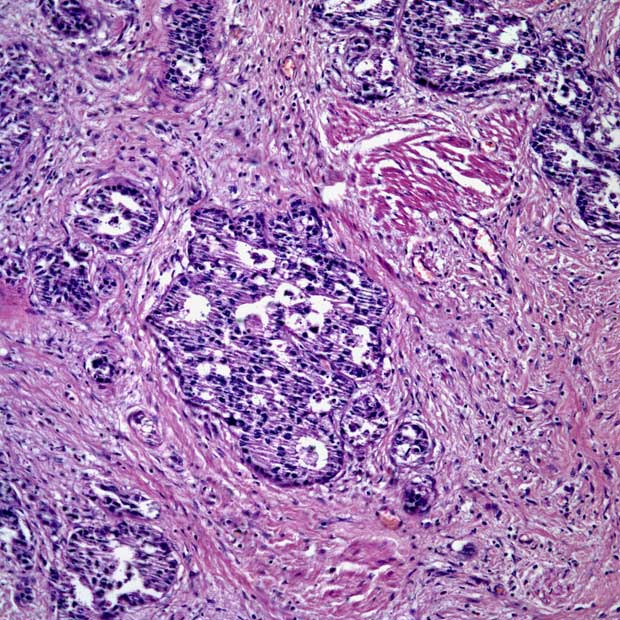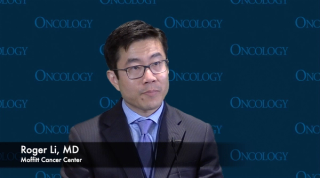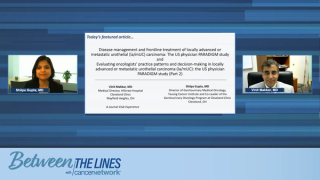
Bladder Cancer
Latest News

Latest Videos

More News

A patient with bladder cancer recounts his diagnosis while Rohit Jain, MD, and Anand B. Shah, PharmD, BCOP, review treatment options and the toxicity associated with them.
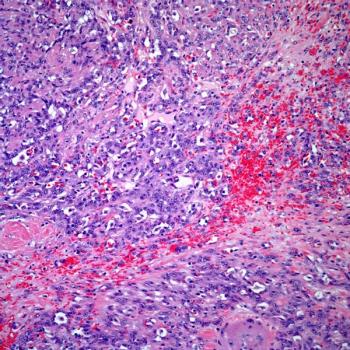
Investigators will continue to assess overall survival in patients treated with pembrolizumab for localized muscle-invasive urothelial carcinoma as part of the phase 3 AMBASSADOR trial.
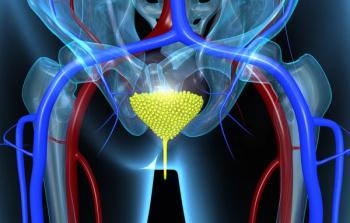
Combining pembrolizumab with enfortumab vedotin-ejfv significantly improves responses vs chemotherapy among patients with previously untreated locally advanced or metastatic urothelial carcinoma.

Findings from the phase 3 THOR study support the marketing authorization application for erdafitinib as a treatment for those with advanced or metastatic urothelial cancer harboring FGFR3 alterations.

Real-world data suggest that the presence of pelvic lymphadenopathy should not be viewed as a contraindication to trimodality therapy in nonmetastatic clinically node-positive bladder cancer.

The Evolving Treatment Landscape and Patient Perspectives
Drs Jain and Shah discuss the future of patient care in metastatic bladder cancer, while Mr. and Mrs. Ehas share advice for patients with bladder cancer, advice for caregivers and closing thoughts on their overall journey.
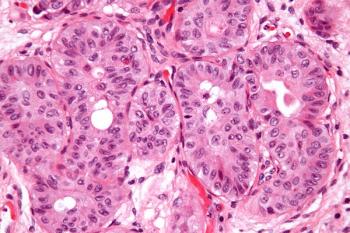
FDA Accepts sNDA for Erdafitinib in FGFR+ Advanced Urothelial Carcinoma
Data from the phase 3 THOR study support the supplemental biologics license application for erdafitinib in previously treated advanced or metastatic urothelial carcinoma with FGFR3 alterations.

Immunotherapy Management for Metastatic Bladder Cancer
Focusing on immunotherapy management for metastatic bladder cancer, Dr Shah shares notable toxicities, relevant real-world data, and emergent data on maintenance therapy.

Emergent Data in Frontline and Maintenance Therapy for Metastatic Bladder Cancer
Dr Jain discusses latest data in frontline and maintenance therapy for metastatic bladder cancer and Mr. Ehas shares his experiences during the course of his treatment.
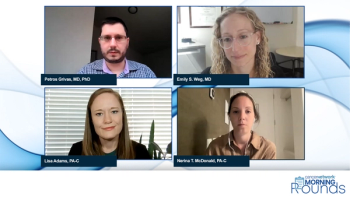
Advanced Bladder Cancer: Future Directions in Care
Closing out their panel on advanced bladder cancer management, key opinion leaders share their excitement for future evolutions within the treatment landscape.

Novel 2L Treatment Approaches in Advanced Bladder Cancer
Expert perspectives on novel treatment strategies in the second-line treatment setting of advanced bladder cancer.

Patient Treatment Experience and the Role of Oncology Pharmacists
Mr. Ehas shares his initial treatment experience and response to chemo, while Anand Shah, PharmD, BCOP describes an oncology pharmacists’ role in patient education and adverse event management.

Frontline Treatments and Cisplatin Eligibility in Metastatic Bladder Cancer
Dr Jain discusses frontline treatment options, cisplatin eligibility criteria, and therapy considerations for metastatic bladder cancer.

During Morning Rounds, Petros Grivas, MD, and his treating team debate the diagnosis of a patient with urothelial carcinoma as it has an unusual presentation.

Advanced Bladder Cancer: Informing Selection of 2L Therapy
Leaders in bladder cancer management consider factors that aid in their selection of second-line therapy.

Improving Care in Bladder Cancer: Palliative Radiation and Treatment Breaks
In light of individual patient needs, perspectives are shared on the roles of palliative radiation and treatment breaks in the setting of advanced bladder cancer.

Patient Experience and Collaborative Care in Metastatic Bladder Cancer
Shared patient perspectives and conversation centered around collaboration in clinical care for metastatic bladder cancer, including the oncology pharmacists’ role in treatment decisions.

Overview of Metastatic Bladder Cancer
Rohit Jain, MD, MPH provides an overview of metastatic bladder cancer, discussing differences in urothelial carcinoma based on location, patient presentations, diagnosis, and staging.
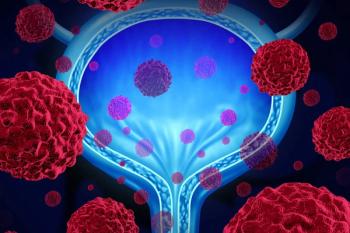
Amid the recent cisplatin shortages across the United States, a pharmacy expert discusses how the treatment of bladder cancer has been affected, especially in the muscle-invasive subtype.

Followup With Patients on Maintenance Therapy for Bladder Cancer
A brief discussion on optimal follow-up practices with patients on therapy for advanced bladder cancer.

Bladder Cancer: Treatment Options for Patients With a Partial Response
Following a patient with bladder cancer who had a partial response to frontline therapy, panelists consider the branching treatment pathway.

Kirollos Hanna, PharmD, BCPS, BCOP, FACCC, discusses what strategies are being used to treat patients with bladder cancer during the chemotherapy shortage.

Among patients with low-grade, non–muscle invasive bladder cancer, intravesical UGN-102 appears to improve outcomes vs standard surgical treatment in two phase 3 trials.

Investigators of a meta-analysis report no significant difference in outcomes when comparing trimodality therapy and radical cystectomy for the treatment of muscle-invasive bladder cancer.

Bladder Cancer: Educating Patients on Treatment Schedules and Adverse Events
Genitourinary cancer experts share insight on best practices in educating patients on treatment schedules and adverse events when receiving therapy for advanced bladder cancer.


